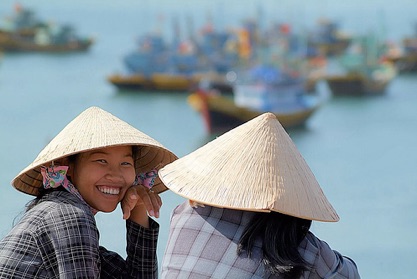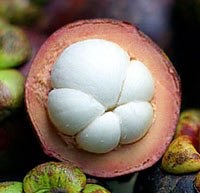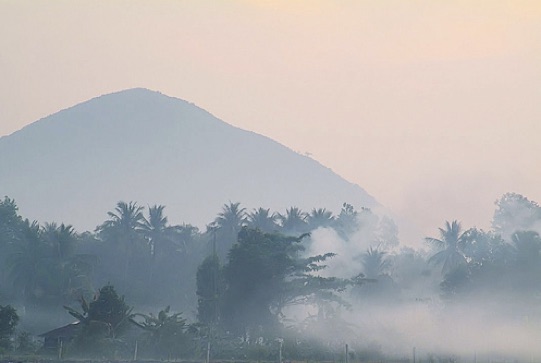MANGUSTAO Huong Thanh (2004) ACT 9423-2

1. Perfumed Flower, The Butterfly Flutters (Nguyên Lê) 6 :34
2. The Mountain and the Source (N. Lê/Karim Ziad) 5 :19
3. In the Pagoda (N. Lê/ Dominique Borker) 6 :01
4. The Blue Dome of the Sky (N. Lê/ Hong Nguyên) 6:37
5. Heave Ho ! (N. Lê/Bago) 3 :47
6. The Courting Nguyên Lê) 5 :11
7. Cold Winter, Faraway Land (Nguyên Lê) 5 :55
8. South Delta Song (Nguyên Lê) 4 :58
9. Moon Boat (Nguyên Lê) 5 :41
10. Like a guitar with no strings (Nguyên Lê) 3 :38
All songs adapted from vietnamese traditionals except #4 & #7
Produced, arranged, engineered & mixed by Nguyên Lê
from 10/2002 to 07/2003 in studio Louxor, Paris Barbès
Executive Producer Siegfried Loch
Design by Peter Krüll
Huong Thanh
Nguyên Lê
Duong Tam
Hao Nhiên
Karim Ziad
Paul McCandless
Paolo Fresu
Dhafer Youssef
Dominique Borker
Illya Amar
Michel Benita
Michel Alibo
Bijan Chemirani
Bago
François Verly
The Barbès Deluxe strings
The Barbès Faith choir
Those who have tasted it call it the « Fruit of the Gods ». Inside its rough, red and dark rind, the Mangosteen conceals a delicious and fresh pulp, like a perfumed flower, white & pure as the snow of sources. One should know how to open it with bare hands, in that asian way made of delicacy and firmness. Like Beauty, Mangosteen is a secret fruit.
« Mangustao » is Huong Thanh's third album, following « Moon & Wind »(1999) and « Dragonfly »(2001). It shows the evolution of work thatbegan with Nguyên Lê in 1995 with « Tales from Viêt-Nam ». The leading thread in this work is still the mixing of Viêt-Nam's musical tradition with today's diversity of languages & techniques. And, eventually to transmit this love for Viêt-Nam to the whole world.
Who else better than Huong Thanh, born in Saigon from a father renowned as an oustanding singer/actor of the « Renovated Theater » (Cai Luong), can embody this quest for a New Sound from Viêt-Nam ? Raised in the tradition, she was 17 when she arrived in France. And moreover she has a youthful mind & a dynamism which drives her to widen the borders of the past and open her spirit to new encounters. Thus she has become one of the rare Vietnamese singers who not only sings in the style of her native south, but can also perform the music from the north, the center, and from the ethnic minorities. Although Huong Thanh's voice remains entirely pure, this is not for purists. However, the purpose is not to westernize, or to jazzify the singing, nor to discard the accents which are so precious to the meaning & the music of the Vietnamese language. Whenever the melodies descend from pure tradition, they are fully respected ; when Nguyên Lê writes the melodies, poet Hong Nguyên matches the accents of the lyrics with the melodic line. What changes is the way these melodies are presented, and here a new universe begins, and new worlds come together.
« The Mountain and the Source » is based on the juxtaposition of two quite different melodies : the first one from algerian musician Karim Ziad, the second one from the ancient vietnamese repertoire. With both languages and between both worlds, an incredible dialog is created. « The Blue Dome of the Sky » is a new composition in which Nguyên Lê has imagined he was a turkish musician writing a traditional melody. He was inspired by working with Turkish ney master, Kudsi Erguner. This piece features Iranian percussionist Bijan Chemirani, whose subtle & virtuosic zarb brings the Middle East closer to the Far East ; Also the haunting sound of a very european american – Paul McCandless who has for a long time wed western classical music with jazz and who meets the music of Asia here. In « Cold Winter, Faraway Land » Nguyên Lê uses the same writing process –but this time he dreams of Viêt-Nam. The way Huong Thanh sings this initially instrumental melody makes Nguyên Lê’s dream come true. In « Heave Ho » the friends from West Indies (Bago & Roland Chammongom) & from Ivory Coast (Paul Nemlin) show the earthly link which has always brought Work & Singing together. The Cane & Rice workers get together on a traditional West Indies rhythm (Gwoka) with Huong Thanh’s luminous singing & the gospel choir in creole dialect. « South Delta Song » is another worksong from South Viêt-Nam in which Huong Thanh’s singing is like a heart-rending call for this reunion, an invocation to the universal spirit of the blues carried by the strings section & Paul McCandless’ mournful english horn. As in all of Huong Thanh’s albums, long time friends are here to take part in the sound created together : Sardinian trumpet player Paolo Fresu is both the fluttering butterfly in « Perfumed Flower » and the moon light in « Moon Boat ». Piano player Dominique Borker co-wrote « In the Pagoda » and distilled her aerial touch to suit Huong Thanh’s so well. In « The Courting », Illya Amar’s marimba gives a light African touch, adding a fine color to the typically Vietnamese monocorde played by Duong Tam, a traditional musician based in Los Angeles. Without your parents, you are like « Like a guitar with no strings » – with this touching lullaby from South Viêt-Nam, tunisian Oud player Dhafer Youssef dreams up an All South Blues.
All these encounters, created and orchestrated by Nguyên Lê, have given birth to the suave Mangustao. May some auspicious rain nourish this fruit and take us from distant tropics to future skies!
Ceux qui l’ont gouté le nomment le « Fruit des Dieux ». Le Mangoustan cache, sous son écorce rugueuse, rouge & obscure, une pulpe délicieuse et fraiche comme la fleur parfumée, blanche & pure comme la neige des sources. Il faut savoir l’ouvrir à mains nues, avec ce mélange tout asiatique de délicatesse & de fermeté. Comme la Beauté, Le Mangoustan est un fruit secret .
« Mangustao » est le troisième album de Huong Thanh, après « Moon & Wind »(1999) et « Dragonfly »(2001). Il témoigne de l’évolution du travail commencé avec Nguyên Lê depuis la rencontre en 1995 de « Tales from Viêt-Nam ». L’idée centrale qui guide ce travail est toujours de faire se rencontrer la tradition musicale du Viêt-Nam avec la diversité des languages & des techniques d’aujourd’hui. Et, finalement, de transmettre l’amour du Viêt-Nam au monde entier.
Qui d’autre mieux que Huong Thanh, née à Saigon d’un père connu comme un des plus célèbres chanteurs/acteurs de Théatre Rénové (Cai Luong), peut incarner cette quête d’un Nouveau son du Viêt-Nam ? Car non contente d’avoir été bercée par cette tradition, Huong Thanh, arrivée en France à l’age de 17 ans, possède la jeunesse d’esprit & le dynamisme qui la pousse à repousser les frontières du passé et s’ouvrir à de nouvelles rencontres. C’est ainsi qu’elle est devenue une des rares chanteuses vietnamiennes à chanter non seulement les styles de son Sud natal (chose que la tradition implique de manière exclusive), mais aussi ceux des autres régions : le Nord, le Centre, les Minorités ethniques. Fi donc des puristes, et pourtant le chant de Huong Thanh reste en lui-même d’une pureté inaltérée. Car il ne s’agit pas de l’occidentaliser, le jazzifier ou d’omettre les accents si précieux au sens & à la musique de la langue vietnamienne. Lorsque les mélodies viennent de la tradition, leur dessin reste tout à fait respecté; lorsque c’est une composition de Nguyên Lê, le poète Hong Nguyên accorde les accents des paroles avec ceux de la ligne mélodique. Ce qui change c’est bien sûr la manière dont est représentée cette mélodie, et c’est là qu’un nouvel univers s’ouvre, et que de nouveaux mondes viennent se joindre.
« The Mountain and the Source » est construit sur la juxtaposition de deux mélodies au départ très étrangères l’une de l’autre, l’une écrite par l’algérien Karim Ziad, l’autre venant du répertoire traditionnel vietnamien. Entre les deux langues, entre les deux mondes, un dialogue inoui se crée. «The Blue Dome of the Sky» est une nouvelle pièce où Nguyên Lê a imaginé être un musicien turc écrivant une mélodie traditionnelle – il fut inspiré lors d’un travail commun avec le joueur de ney turc Kudsi Erguner. On peut y entendre l’Iran du percussioniste Bijan Chemirani, dont le Zarb, subtil & virtuose, rapproche le moyen-orient de l’orient extrême ; et aussi le son de cet américain très européen qu’est Paul McCandless, qui depuis longtemps marie la musique classique occidentale avec le jazz, & qu’on découvre ici face à l’Asie. Dans « Cold Winter, Faraway Land », le même procédé d’écriture est à l’oeuvre, mais c’est la tradition du Viêt-Nam qui est imaginée ici. La manière dont Huong Thanh habite cette pièce exauce le rêve du compositeur. Dans « Heave Ho ! » les amis des Antilles (Bago, Roland Chammongom) & de Côte d’Ivoire (Paul Nemlin) viennent montrer le lien terrestre qui a toujours uni le Travail & le Chant. Les cueilleurs de Canne & de Riz se retrouvent réunis sur une rythmique traditionnelle antillaise de tambours Gwoka, entre le chant lumineux de Huong Thanh et les chœurs gospel en langue créole. « South Delta Song » est un autre chant de travail, du Sud Viêt-Nam, où le chant de Huong Thanh est comme un appel déchirant à cette réunion, une invocation à l’esprit universel du Blues, portée par la section de cordes et le mélancholique cor anglais de Paul McCandless. Comme dans tous les albums de Huong Thanh, il y a les amis de longue date qui sont devenus partie intégrante du son : le trompettiste sarde Paolo Fresu est tour à tour le papillon voletant de « Perfumed Flower » et la lumière lunaire éclairant « Moon Boat » ; la pianiste Dominique Borker a co-écrit « In the Pagoda » et distillé son toucher aérien qui va si bien à la voix de Huong Thanh. Dans « The Courting », le marimba d’Illya Amar vient donner une touche africaine, ajoutant une fine couleur au monocorde typiquement vietnamien de Duong Tam, musicien traditionnel basé à Los Angeles. « Like a guitar with no strings » - Sans tes parents, tu es comme une guitare sans cordes - Autour de cette poignante berceuse du Sud Viêt-Nam, le joueur de Oud tunisien Dhafer Youssef invente un Blues de tous les Suds.
Toutes ces rencontres, imaginées & orchestrées par Nguyên Lê, ont donné naissance au suave Mangustao. Qu’une pluie heureuse nourrisse ce fruit et nous emmène de lointaines tropiques en ciels futurs!




Ian Morton (VinaPix)
Ian Morton (VinaPix)

